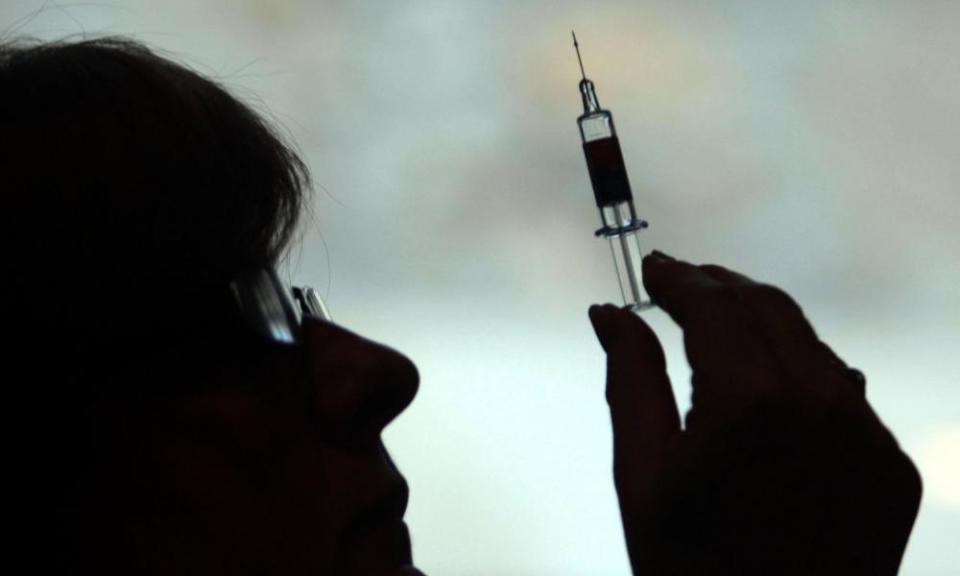Coronavirus: UK launches clinical trial of BCG vaccine

Doctors in the UK have launched a clinical trial to see whether the cheap and widely available BCG vaccine can boost the immune system enough to prevent healthcare workers from catching coronavirus.
The Bacillus Calmette–Guérin (BCG) vaccine is given to protect people from tuberculosis, but studies suggest that it stimulates broader immune responses that help the body keep other infections at bay.
Researchers at Exeter University are enrolling up to 2,000 community healthcare workers, particularly from care homes and GP surgeries, including nurses, caterers and administration staff, for the UK arm of the international Brace trial, which is recruiting 10,000 volunteers worldwide.
Prof John Campbell at the University of Exeter Medical School said the vaccine would be a “global gamechanger” if it helped prevent people from falling ill with the virus and passing it on to others.
default
Volunteers for the trial will receive a shot of BCG or a placebo and be monitored for a year to see whether the vaccinated group pick up fewer Covid-19 infections and have less severe illness. The trial could release preliminary results in six to nine months.
While BCG raises a specific immune response against TB, a bacterial disease, studies have found that the vaccine can also protect against viral infections.
Last month, an international team of scientists published trial results in the journal Cell showing that elderly people had substantially fewer respiratory infections after having the vaccine. In the trial, 42.3% of the placebo group caught viral infections, compared with 25% of those who had the jab.
“If we see anything close to that sort of protection for coronavirus, this could be a global gamechanger,” Campbell said.
The primary goal of a vaccine is to stimulate what is called the adaptive immune system. This is the body’s highly targeted second line of defence, which unleashes antibodies and T-cells to wipe out invading pathogens. The BCG vaccine is designed to do this for TB, but it also boosts the “innate” immune system, the faster but less targeted frontline defence that tries to see off any kind of infection before it takes hold.
Since the pandemic began, scientists have found evidence that BCG vaccination may help to reduce Covid-19 deaths, but the results are mixed and contested. If the trial proves that BCG works against coronavirus, Campbell said it could buy the world crucial time to develop the more effective and targeted vaccines needed to bring the pandemic under control. It could also be rolled out in future pandemics if found to protect against viral infections generally.
Mihai Netea, a researcher at Radboud University in the Netherlands, said BCG appears to train the body’s first line of defence and make it more active against future infections. “We think that in a non-vaccinated person, the virus comes in and starts to multiply, but the host defences are slow, so the virus has a chance to multiply a lot,” he said. “With BCG we want to strengthen that initial response, to make the immune system fight hard and fight early, so the virus does not have a chance to multiply.
“If we can show this is true now, in this pandemic, then BCG can be used in any future pandemic, because there will be more, he said. “It could be used immediately.”

 Yahoo News
Yahoo News 